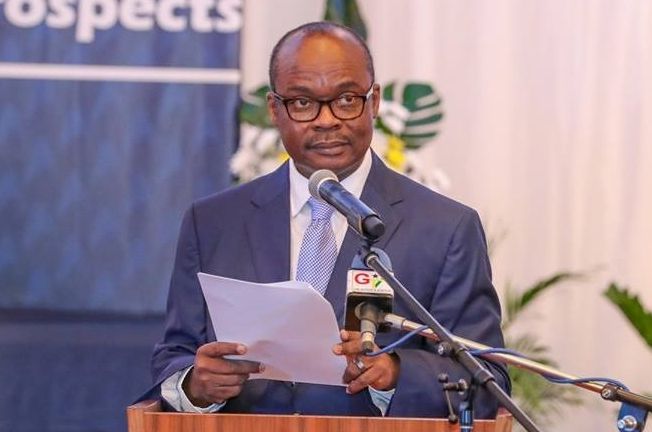
Ghana’s debt sustainable but economy vulnerable - Governor
Ghana’s public debt stock is sustainable even though the large foreign investor component makes the economy vulnerable, the Governor of the Bank of Ghana (BoG), Dr Ernest Addison, has said.
He called for a shift in the conversation around the country’s debt levels from its stock and quantum to the composition, explaining that the amount of debt in the hands of non-resident investors showed the level of vulnerability to which the economy was exposed.
Advertisement
The BoG’s summary of financial and economic data released last Thursday put Ghana’s debt stock at GH¢200 billion, equivalent to 58.1 per cent of domestic productivity measured in gross domestic product (GDP) as of May this year.
Press conference
The Governor was responding to questions on the country’s debt levels at the bank’s Monetary Policy Committee (MPC) press conference in Accra yesterday.
“Our assessment is that Ghana’s debt stock is sustainable but that assessment is contingent on very high rates of growth,” he said.
Dr Addison explained that high growth rates led to a bigger national income, measured by GDP and that whittled down the debt-to-GDP ratio which was a key criterion in assessing debt sustainability.
“It is also contingent on certain assumptions about interest rates and exchange rates,” the Governor added.
Debt growth
The data from the central bank showed that the public debt stock ended last year at GH¢173.2 billion, equivalent to 58 per cent of GDP but rose to GH¢198 billion, equivalent to 57.5 per cent in March this year.
It rose further to GH¢200 billion in May this year, partly due to exchange rate pressures on the external component of the debt within the period, the BoG Governor said.
Similar data from the Ministry of Finance showed that as of March this year, foreign investors held about 67.17 per cent of the country’s debt stock, leaving a little above 30 per cent in the hands of domestic investors.
Shifts and sentiments
Dr Addison said the composition was worrying, given the vulnerability it posed.
He explained that while the central bank’s assessment had found the debt levels to be sustainable, the country needed to confront the reality that its debt composition made it vulnerable to foreign investor sentiments.
“I do not think we should shy away from the view that there are vulnerabilities; this is really what the discussions should be about,” he said.
“If you have a bit of external debt and you have significant non-resident holdings of your debt, you are vulnerable to movements in exchange rates.
“So, the discussion in reality should shift away from the question of debt sustainability to an assessment of how vulnerable are we to shifts and sentiments,” he said.
In addition to exposing the debt stock to the impact of foreign exchange rate pressures, having a chunk of a nation’s debt in the hands of foreign investors means that those investors could easily sell off their holdings and move to markets where yields are relatively higher.
IMF/World Bank assessment
The Governor’s comments on the sustainability and composition of the national debt stock come on the back of growing concerns that Ghana was accumulating debt at a quicker pace that posed risks to the economy.
Already, the World Bank and the International Monetary Fund (IMF) have maintained that Ghana was at a high risk of debt distress after their assessments found that public debt levels had breached three of their debt sustainability analysis criteria.
The country entered the list in 2015 and has since been unsuccessful in exiting that bracket.
Also, in April this year, a similar assessment by the Economic Commission for Africa (ECA) listed Ghana among 11 countries in the sub-region that were at high risk of debt distress.
Policy rate maintained
The BoG, however, maintained its benchmark policy rate at 16 per cent for the third time since January this year.
Dr Addison said the bank’s core mandate of price stability was on track, with inflation remaining within the target band in the last 15 months.
He said the MPC found that the pass-through effect from exchange rate depreciation was waning and the underlying inflationary pressures and expectations were all well anchored, hence the decision to stay the rate.
Domestic outlook
On the domestic front, Dr Addison said economic activity remained strong and broad-based.
He, however, noted that there were some downside risks to growth, mainly from subdued business sentiments and the recent increase in utility tariffs.
As a result, the governor said growth was expected to remain robust in the second half of the year.
“The medium-term outlook for the real sector is positive, based on improving consumer sentiments and continued recovery in private sector credit growth,” Dr Addison said.




